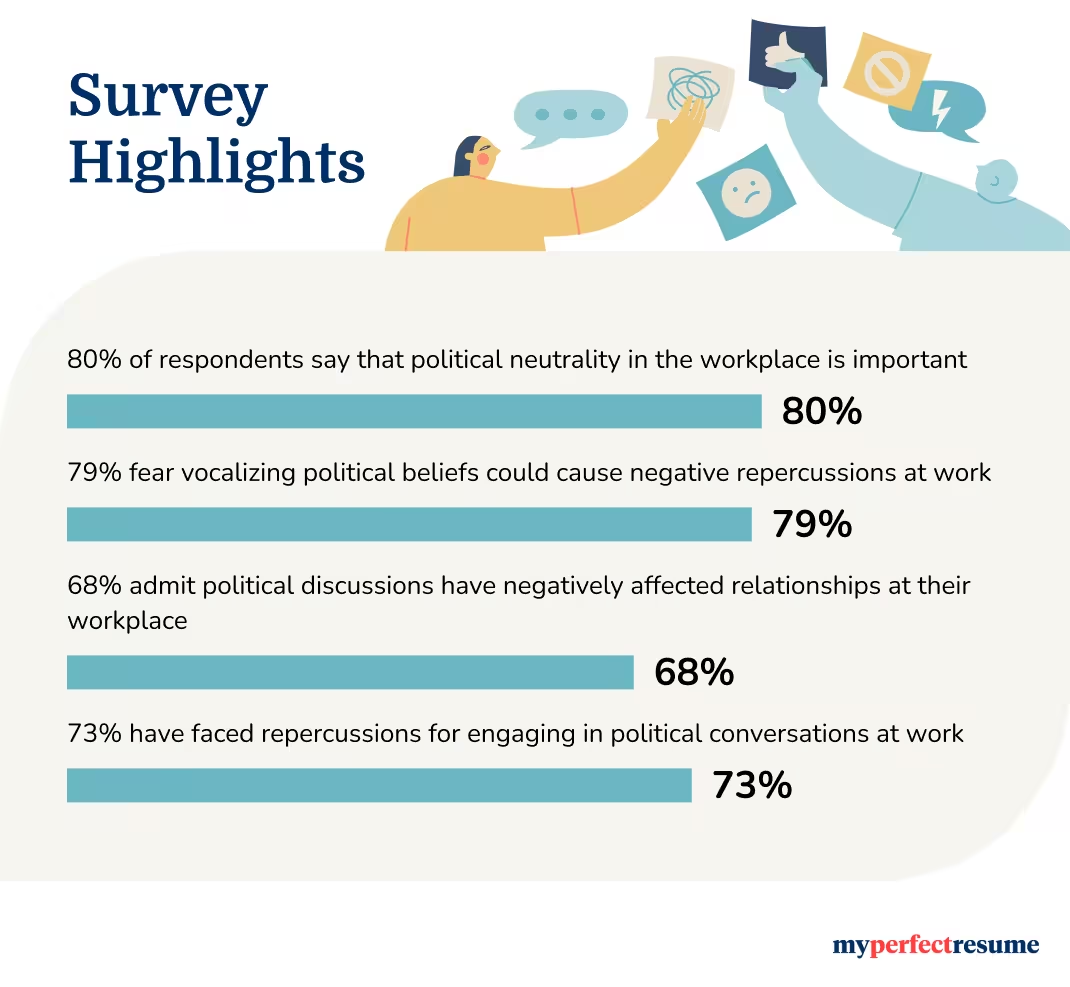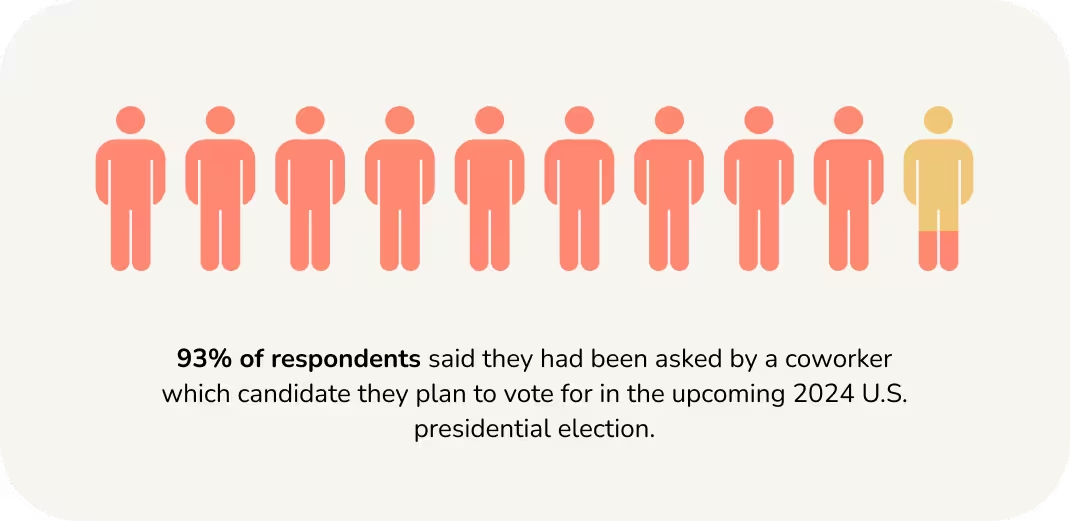Political Discussions in the Workplace Survey Reveals 71% of Workers Wish 2024 Election Chatter Would Stop

Our customers have been hired at: *Foot Note
From the nightly news to radio and television ads to lawn signs planted in neighbors’ yards, talk of the upcoming U.S. presidential election is nearly impossible to avoid. However, most workers feel that the workplace should be a haven from these discussions.
MyPerfectResume polled 1,102 workers for its Political Discussions in the Workplace Survey to assess their feelings about political conversations in the workplace as Election Day approaches. Of those polled, 89% say that employers should limit or discourage political discussions in the workplace. Let’s take a closer look at the survey results.
Workers Wish Employers Would Curb Election Talk
The consensus among workers is that political chats have no place in the workplace. When asked whether employers should limit or discourage political discussions at work as the 2024 U.S. presidential election approaches, most (89%) workers agreed, with 71% of those saying these discussions should be limited and 18% saying employers should discourage them.
The desire to limit political conversations in the workplace may be linked to the pressure many workers feel to discuss their views.
- Most participants (93%) said they had been asked by a coworker which candidate they plan to vote for in the upcoming 2024 U.S. presidential election.
- Another 73% said they have felt pressured to share their political views at work.
These questions aren’t always welcome. Workers expressed myriad concerns about how political discussions disrupt their work lives.
- 80% of participants said political neutrality in the workplace is important to their job satisfaction.
- When asked whether they would leave a job if their employer promoted political ideologies they strongly disagreed with, 74% confirmed they would.
- Workers aged 25 or younger were more apt to report they would leave a job if their employer promoted political ideologies with which they strongly disagreed (92%) compared to workers aged 26 or older (72%).
Political Discussions Negatively Impact Workers
The expression of political beliefs sparks fear in many workers. When asked whether they believe vocal political beliefs or activism outside of work could lead to negative repercussions from their employer, 79% said yes.
Entry-level workers were much more fearful, with 91% of entry-level workers saying they fear expressing their political beliefs outside of work could have negative repercussions, compared to 68% of experienced workers.
The age of participants also influenced their opinions on expressing political views. Younger workers reported more apprehension than their older counterparts, with 95% of workers aged 25 or younger expressing concern that their political beliefs or activism could have negative repercussions in the workplace compared to 75% of workers aged 26 or older.
These fears may be based on past experiences. When asked whether workplace political discussions have ever negatively affected their professional relationships, 68% admit they have.
Of those polled, 73% have witnessed concerning situations arising from political discussions at work, including:
- Arguments (47%)
- Favoritism (44%)
- Bullying (36%)
- Disciplinary action, like a warning from HR or a colleague being fired (34%)
- Retaliation, such as exclusion from projects or unfair treatment (34%)
Another 73% reported that they have personally faced repercussions for engaging in political conversations at work. These scenarios include:
- Arguments (46%)
- Favoritism (45%)
- Disciplinary action, like a warning from HR or being fired (32%)
- Bullying (31%)
- Retaliation, such as exclusion from projects or unfair treatment (31%)
Most Workers Regret Engaging in Political Talks
Regrets about participating in political discussions at work are very common; 82% of respondents regretted engaging in such discussions.
Participants provided many explanations for why they regret engaging in political discussions at work, including:
- Changed opinions respondents had about their coworkers (52%)
- Experiencing retaliation, such as exclusion from projects or unfair treatment (45%)
- Creating tension in the office (43%)
- Feelings of isolation or damaging a workplace relationship (43%)
- Receiving disciplinary action from employer (43%)
Methodology:
The findings presented were obtained by surveying 1,102 American workers. The survey was conducted online on July 29, 2024. The study participants were asked questions about their feelings about political discussions in the workplace. These included yes/no questions, open-ended questions, scale-based questions relating to levels of agreement with a statement, and questions that permitted the selection of multiple options from a list of answers.
For media inquiries, contact Elizabeth Buccianti, senior manager, public relations at elizabeth.buccianti@bold.com.
Our customers have been hired at:*Foot Note







